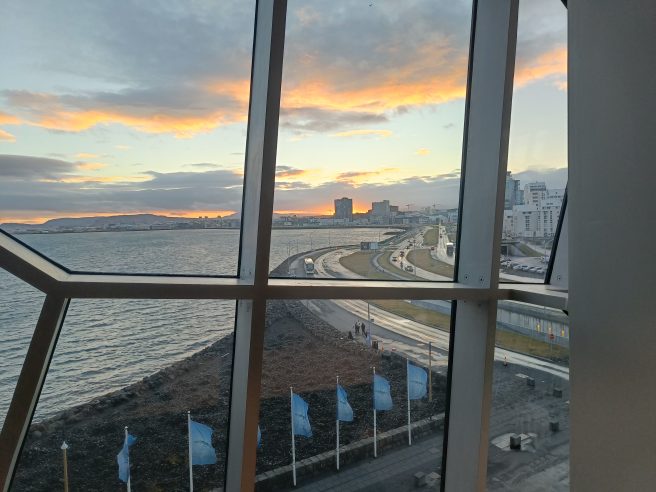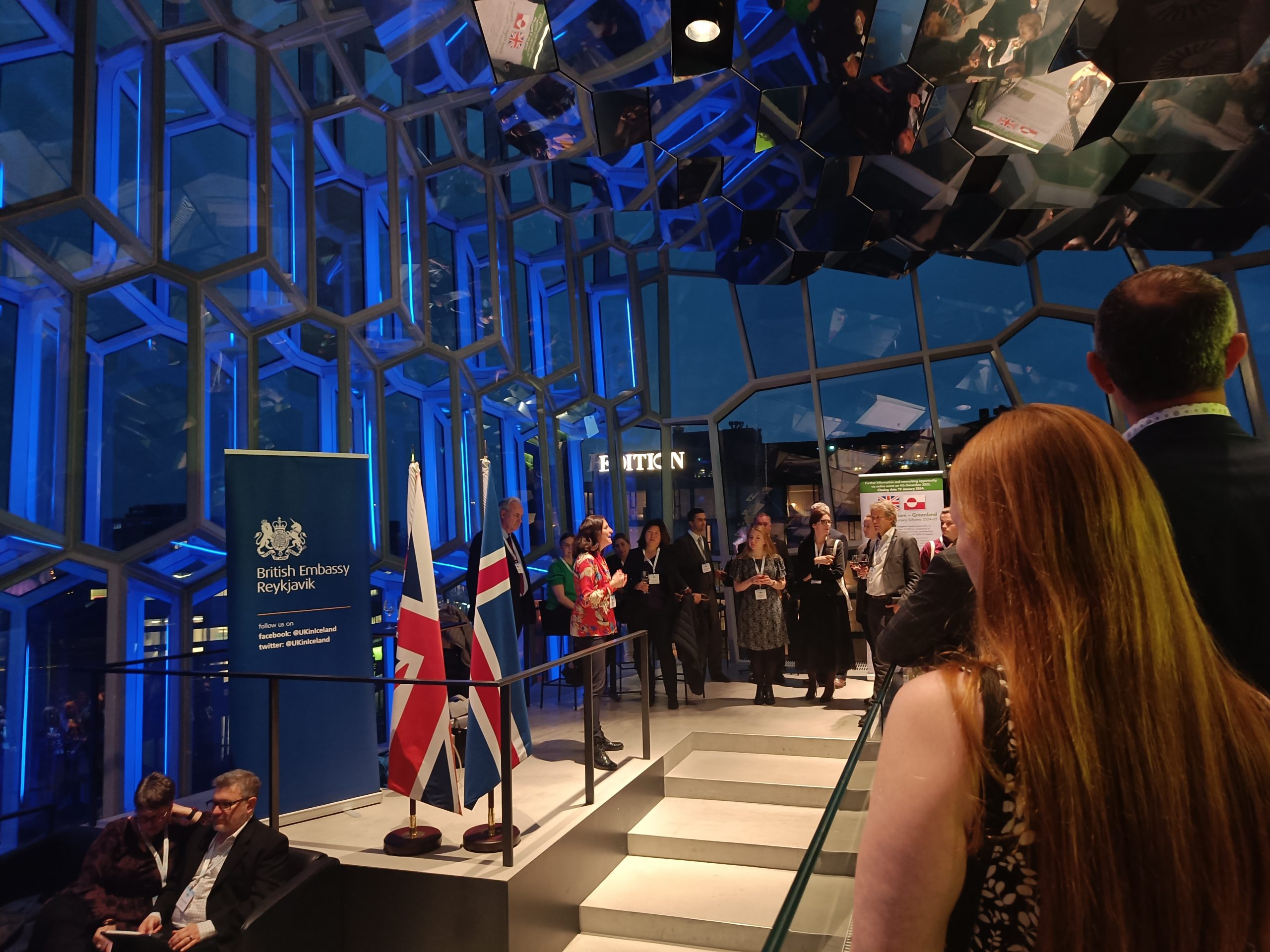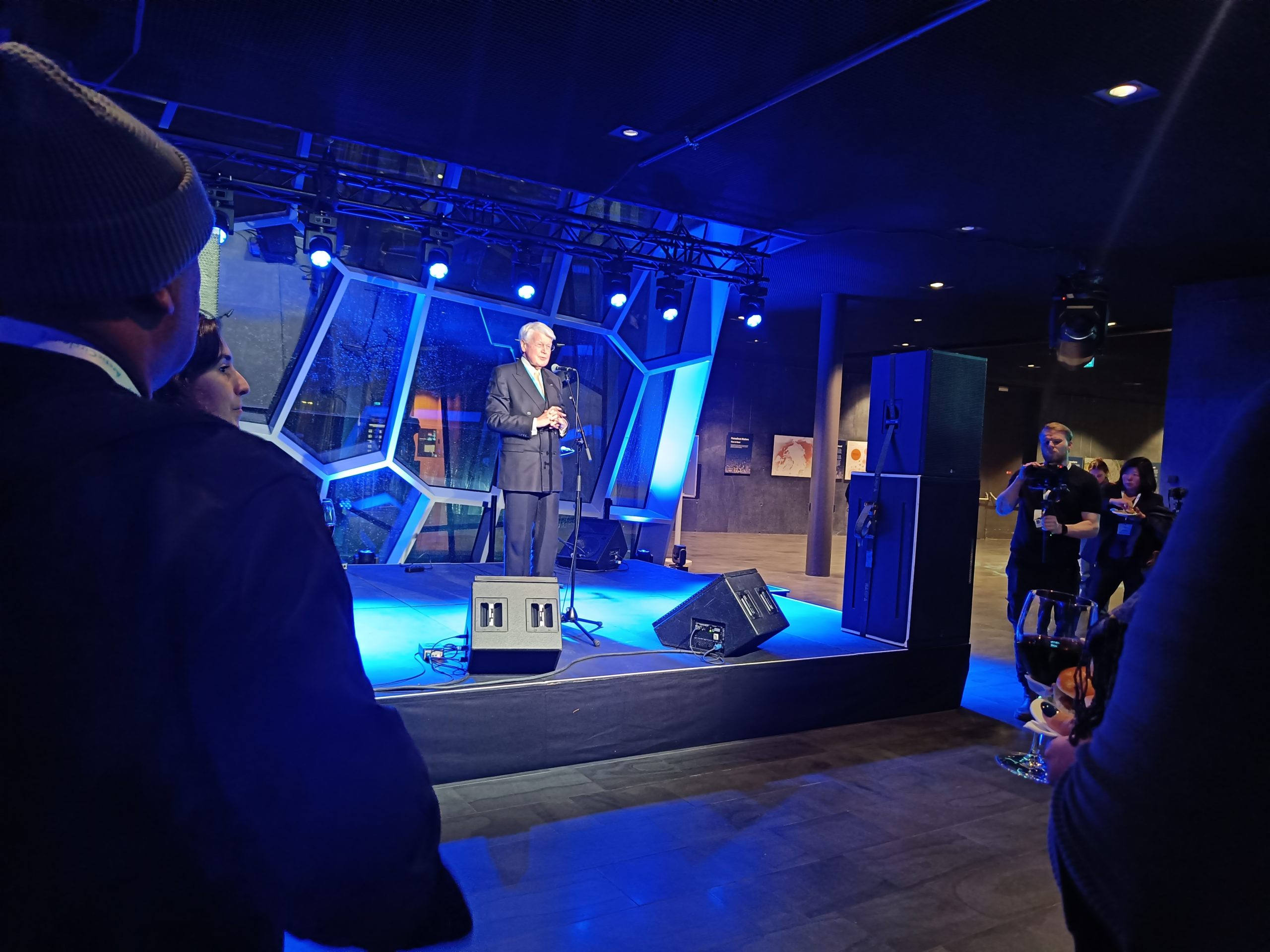From ice to inspiration: A glimpse into the Arctic Circle Assembly
4 November 2023
By Brett Lewis
On the 19th of October 2023 I arrived at my first Arctic Circle Assembly. I had a pretty good idea of what to expect: the assembly is the largest conference forum concerning the Arctic and covers just about every topic. Around 2000 people of all disciplines and backgrounds were expected to attend. This event was not just the academic opportunity that I had imagined, it was a platform for Indigenous voices, a diplomatic forum for politicians, and a marketing opportunity for business.

A lesson on opportunity cost
On the programme, you can find sessions relating to local politics, economics, international relations, geology, and even space, to name a few. The forum attempts to give coverage to a spectrum of scientific inquiries across 200 sessions. Thankfully, it was apparent that the work that had gone into designing the programme was extraordinarily meticulous in ensuring that there were multiple opportunities for people to attain a balanced diet of scientific curiosity throughout the conference. On any given session slot, for example, it was usually the case that you could attend a session relating to one of either geopolitics, Indigenous issues, economic progress, or the physical sciences.
Still, certain sessions were of importance to me due to my research interest in how countries make sense of the Arctic and so decisions had to be made on which sessions not to attend. The option to attend sessions on a range of issues was a very attractive trait of this conference to an early PhD student like me, however. The large catalogue of sessions allowed me to become exposed to topics and issues that I might not have heard about otherwise and has given me much to think about for my own research.
Politics mingles with science
I was surprised with how many politicians were very approachable. You could find MPs from the UK dotted around the conference engaged in discussions with politicians and academics alike. Even those more high-profile dignitaries, like US Senator for Alaska Lisa Murkowski, took several questions from the audience during the plenary sessions, including a more difficult to answer question concerning the US Republican party’s often denialist on climate change. It is clear that not only do academics have a clear means to contact politicians during the conference, but also that hard questions aren’t left at the door.
What’s more, is that I noticed that politicians were oftentimes the ones asking the questions to the academics. Having just completed a masters in social science research methods, where a particular module covered the issue of misalignment of aims between research and policy, it was both strange and encouraging to see policymakers so openly engaging with researchers. Of course, whether much will feed through to policy is another question entirely. While the conference portrays a positive environment that facilitates discussion across institutional lines, big questions arise when dignitaries of the United Arab Emirates are given a platform here on their progress in decarbonisation. Questions that were indeed asked and were met with rounds of applause by the audience.

Endearing optimism
You would be forgiven for holding a pessimistic perspective on the Arctic. The ice is continuing to melt, the sea levels are rising, and a plethora of socio-economic and environmental issues are cascading due to these problems. This is certainly discussed at length during the conference, but there is this feeling of defiant optimism that seems to have followed me home.
Russia’s war in Ukraine has caused a great deal of anxiety concerning future Arctic cooperation. Last year, there were concerns that the Arctic Council had met its end in encouraging cooperation in the Arctic as 7 members disengaged from participating due to Russia’s actions. Despite this, I heard countless times that representatives for these 7 members have been active in discussions, that the geopolitical landscape is adapting to new challenges in the region, and that cooperation is continuing in defiance of external circumstances.
In various sessions, participants discussed the role of new technologies that have reduced carbon emissions, improved connectivity to remote areas, increased our knowledge of delicate ecosystems, and much more. I heard a constant stream of progress updates on this initiative, that project, and those policies. People also told me of their research interests and plans for the future, and how they are engaging in collaboration across cultural, political, and disciplinary boundaries. It was also a fantastic opportunity for me to expand my network through conversations with eager researchers who were keen to hear of my (albeit fledgling) research project.
The Assembly gives me great confidence that the Arctic is given a sufficient platform for stakeholders to engage in constructive discussions. While there is assuredly much work that needs to be done by countries of the world in dealing with climate change, security in the Arctic, and protecting indigenous rights, this conference brings together people to discuss important matters in a balanced and open manner.
Brett Lewis is a PhD student at Cardiff University. Currently in his first year, he has a background in economics and politics with an undergraduate degree in Economics from Swansea University, and a Masters in International Political Economy from the University of Warwick. Brett’s research interests are in international relations and the Arctic. Initially brought on by a previous dissertation that examined how the Sino-Russian relationship is made complicated and asymmetric due to the Arctic, Brett’s interest in the Arctic is now on the wider role that it has to play in geopolitics.
- Exploring the Arctic: My Journey Through a Postgraduate Diploma in Arctic Studies
- Impressions from our qualitative expert interviews on changing political priorities in the Arctic
- From ice to inspiration: A glimpse into the Arctic Circle Assembly
- Seasonal Geopolitics of the North Pole
- The Polaris expedition and the problem of bias in Arctic exploration history